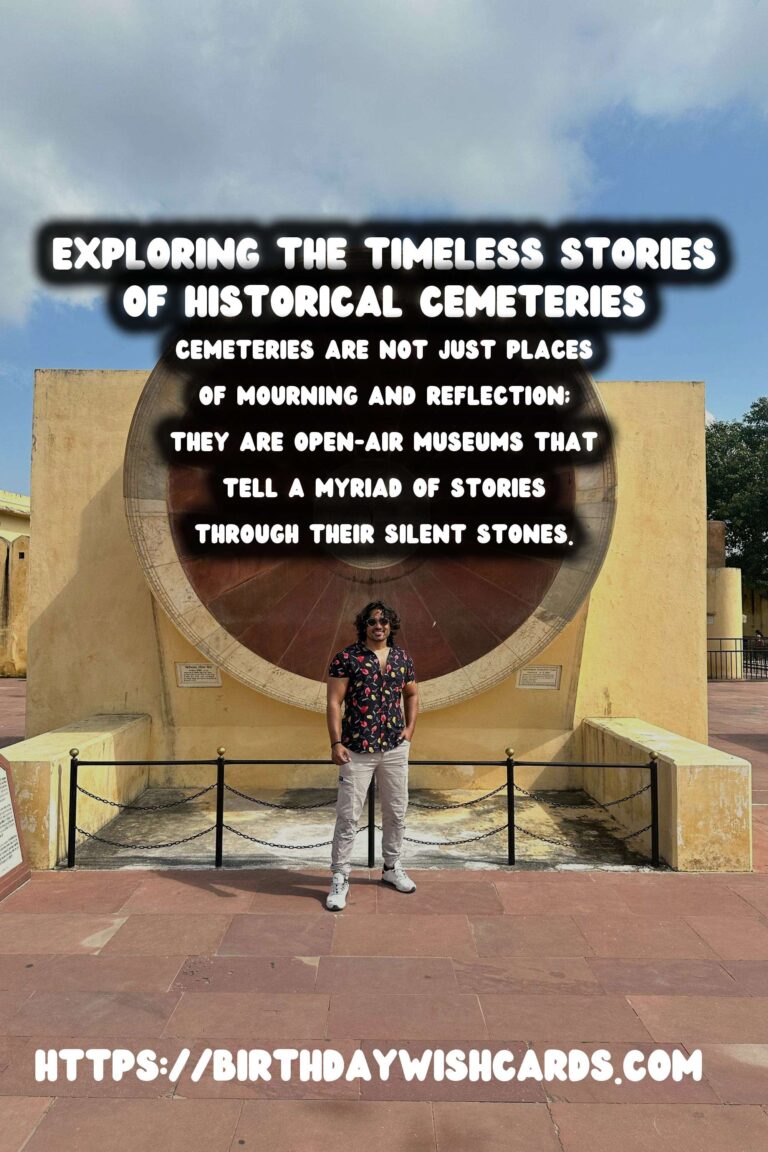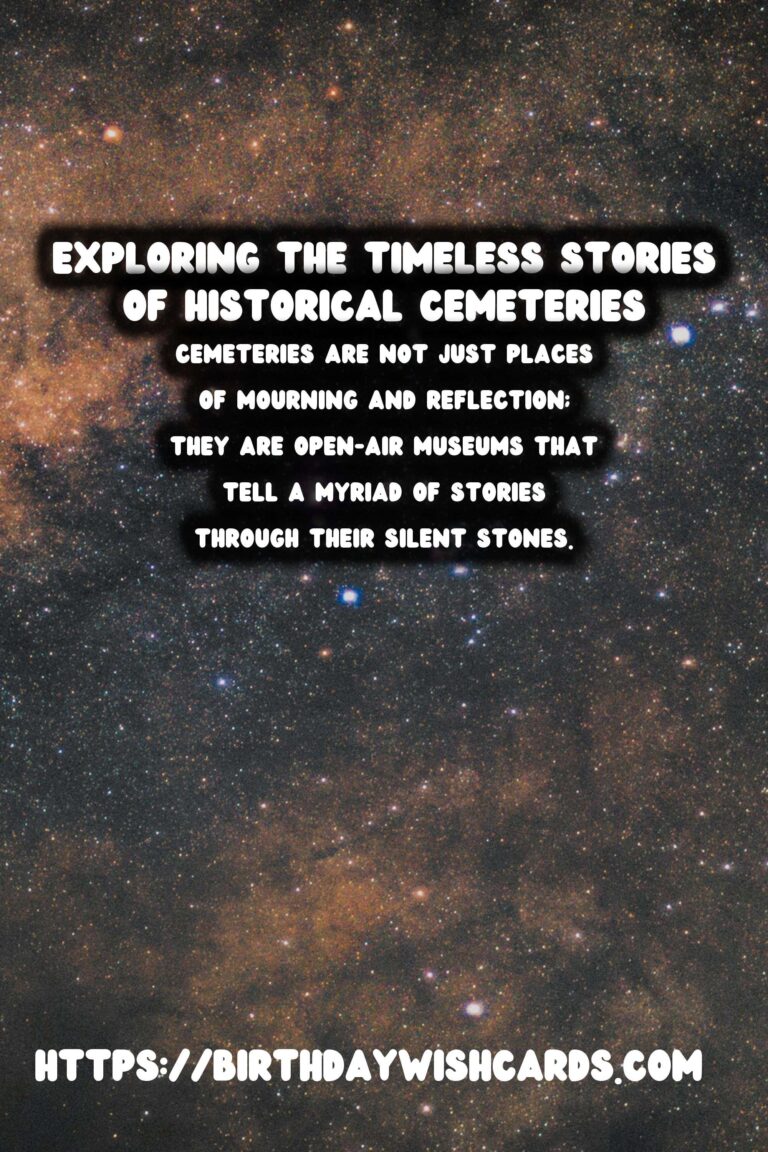
Cemeteries are not just places of mourning and reflection; they are open-air museums that tell a myriad of stories through their silent stones. Historical cemeteries around the world offer insights into the cultural, social, and personal histories of the people who once lived. These cemeteries are rich with art, architecture, and poignant narratives etched into each monument, providing historians, genealogists, and curious visitors a glimpse into the past.
The Artistic Splendor of Grave Monuments
The gravestones and mausoleums in historical cemeteries are more than markers; they are works of art. Many were crafted by skilled artisans and reflect the artistic styles of their eras. Gothic, Neoclassical, and Baroque elements are commonly seen, with detailed carvings that tell stories of faith, love, and loss. Some tombstones are adorned with angelic figures, symbolizing guardianship or ascension to heaven, while others feature more somber imagery, reflecting the beliefs and customs of the time.
Cemeteries as Historical Records
Beyond their aesthetic value, historical cemeteries serve as invaluable historical records. The inscriptions on tombstones provide essential information about the deceased, such as dates of birth and death, familial relationships, and sometimes even significant personal achievements or causes of death. In times before digital records, gravestones were one of the few permanent records of a person’s existence, and they remain crucial for genealogical research today.
Notable Historical Cemeteries Around the World
Several cemeteries around the world are noted not only for their historical significance but for the famous individuals buried within their grounds. Père Lachaise in Paris, for instance, is renowned for being the final resting place of luminaries like Oscar Wilde, Jim Morrison, and Édith Piaf. Its tranquil beauty and rich history make it a popular pilgrimage site for fans and historians alike.
In the United States, Arlington National Cemetery stands as a solemn homage to military personnel. The rows of white gravestones are a stark reminder of the cost of conflict and the price of freedom. Similarly, Highgate Cemetery in London is home to intricate Victorian tombstones and the resting place of notable figures such as Karl Marx.
The Influence of Culture and Religion
Grave markers often reflect the cultural and religious beliefs of the deceased. In Jewish cemeteries, for instance, it is customary to leave small stones on the grave as a sign of respect. In New Orleans, the above-ground tombs in St. Louis Cemetery No. 1 reflect a blend of French, Spanish, and African influences.
Throughout Asia, cemeteries like the Okunoin Cemetery in Japan showcase the country’s Buddhist heritage with hundreds of lantern-lit paths and ancient tombstones amidst towering cedar trees. These cemeteries are not merely burial grounds, but sacred places that encapsulate centuries of tradition and belief.
Preservation and Challenges
Preserving these historical sites poses significant challenges due to natural decay, vandalism, and urban development. Weathering, erosion, and pollution can severely damage older gravestones, erasing the inscriptions and artwork over time. Conservation efforts are increasingly being prioritized to maintain these cultural heritage sites, ensuring they can be appreciated for generations to come.
Visiting Historical Cemeteries
For those who visit, historical cemeteries offer a serene environment for reflection and education. Walking tours often provide insights into the historical context of the cemetery, celebrating the lives of those buried there while acknowledging the diverse narratives that comprise our collective history.
Whether you are a history enthusiast, a genealogist, or someone seeking a deeper connection to the past, historical cemeteries provide an enriching experience. The stories etched in stone are a testament to humanity’s enduring legacy, each grave a chapter in the long tale of our existence.
Cemeteries are not just places of mourning and reflection; they are open-air museums that tell a myriad of stories through their silent stones. Historical cemeteries offer insights into the cultural, social, and personal histories of the people who once lived.
#HistoricalCemeteries #CulturalHeritage

